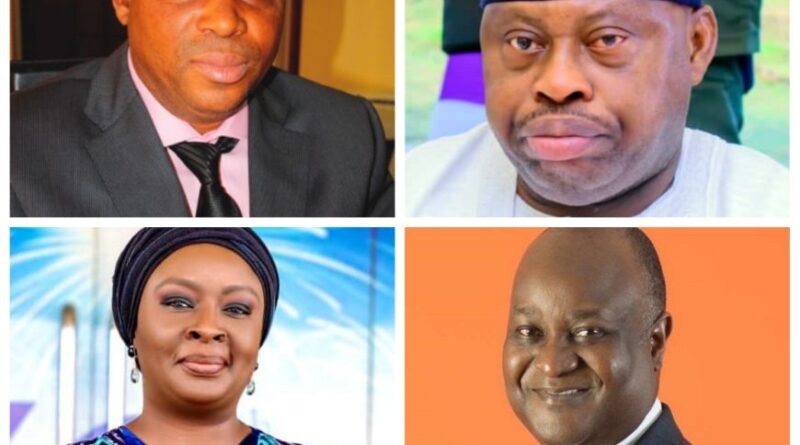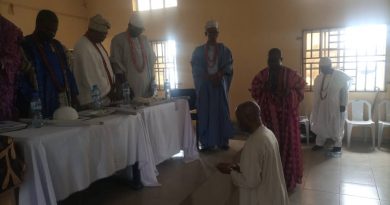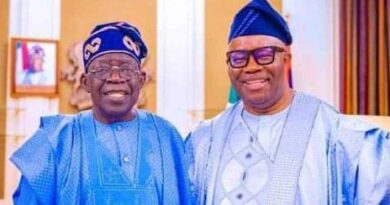Ogun NIPR To Honour Lemo, Akinmade, Others At 2023 Colloquium
The Ogun State Chapter of Nigerian Institute of Public Relations (NIPR) will, on Thursday, honour four distinguished Nigerians at its 2023 Annual Colloquium.
The event, which will hold at the Cinema Hall, June 12 Cultural Centre, Abeokuta, according to a statement e-signed by NIPR Chairman, Oluwaseun Boye and Secretary, Kunle Olayeni, will have the Ogun State Governor, Prince Dapo Abiodun, as the Special Guest of Honour.
The statement listed the personalities to be conferred with awards as former Deputy Governor of Central Bank of Nigeria (CBN), Dr Tunde Lemo, OFR; former Special Adviser to the Speaker of the House of Representatives, two-time commissioner in Ondo State and Senior Consultant to Governor Abiodun, Hon. Kayode Akinmade; former Board Chairman, Nigeria Deposit Insurance Corporation (NDIC), Mrs Ronke Sokefun; and property magnate, Otunba Wole Ogunbayo.
With the theme, “Pluralism and Public Opinion Management: Challenges and Prospects for a Sustainable Democracy in Nigeria,” the colloquium is expected to be a rallying point for professionals to dissect some of the problems confronting the Nigerian nation.
Prof. Adelaja Odukoya, a Professor of Political Science and current Dean, Faculty of Social Sciences at the University of Lagos, will be the Guest Speaker at the event which will also feature veteran journalist, Eddie Aina, as moderator, and Professor Biyi Abosede, Ustaz Jubril Awwal and Professor (Mrs) Bolanle Akeredolu-Ale as discussants.
The NIPR National President, Mallam Mukhtar Sirajo, fnipr, will chair the important occasion which will be graced by prominent traditional rulers who are public relations veterans, including the Olota of Ota, Oba Professor Adeyemi Obalanlege, and the Towulade of Akinale, Oba Olufemi Ogunleye.
According to the organisers, Governor Abiodun is expected to share perspectives on how to achieve social harmony needed to attain a sustainable democracy in the country.
The Annual Colloquium is also expected to be attended by erudite scholars, astute professionals, government functionaries, political actors, traditional rulers, leaders of ethnic groups, civil society organizations, religious bodies and media communities as well as Mass Communication Students from various tertiary institutions.




